The WA government has dismissed concerns that Western Australian youth are not getting sufficient and up-to-date information about HIV.
OUTinPerth asked if Education Minister Dr Buti was concerned about claims that students are graduating with no knowledge, incorrect knowledge, or outdated knowledge of HIV.
A spokesperson for the Minister said that the current Health and Physical Education curriculum sufficiently covers the topic.
The Minister’s spokesperson said the current curriculum “provides students with opportunities to develop the knowledge, understanding and skills to strengthen their sense of personal identity and autonomy, build resilience, manage risk and develop satisfying, respectful relationships.”
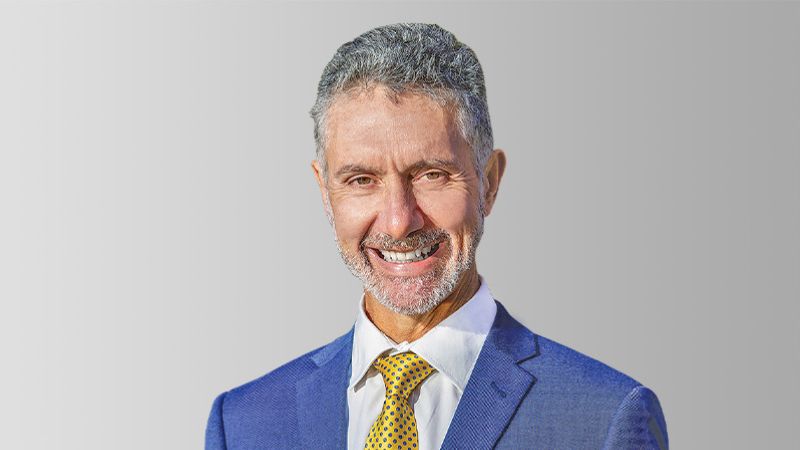
The spokesperson said when it came to young people gaining information about relationships and sexuality parents, carers and family members were the “most critical source of information for children.”
“More than anyone else, they will lay the foundations for well adjusted, confident and healthy children who go on to experience positive, respectful relationships.” the spokesperson said.
The issue was highlighted in December at the World AIDS Day breakfast in Perth where leading health practitioner in the field Dr Fergus McCabe voiced concern about young people’s knowledge of HIV, PrEP treatment and their understanding of U=U: the concept that Undetectable equals Untransmissible.
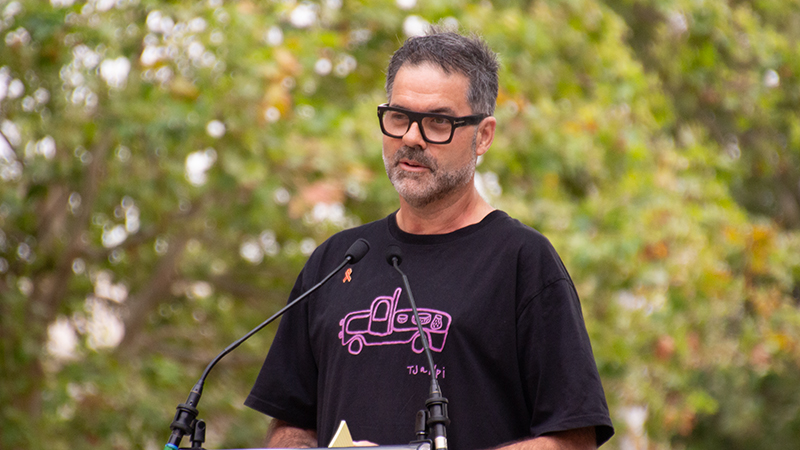
Dr McCabe raised alarm over how much teenagers today know about HIV, a challenge that became clear after his son interviewed his peers about what they knew about the virus.
“It’s scary what these kids think and what they believe. It’s scary how little education they have any more on HIV.
“These boys thought you could catch HIV if you coughed on somebody, if you spat on somebody, they thought it was caught by bestiality. Their only access to information was social media, the most educated one, the one that knew most about it, got it from the television program.
“They got no sexual education, HIV education in school whatsoever, and that’s a dire diagnosis.” Dr McCabe said.
The spokesperson for Education Minister Tony Buti told OUTinPerth that students in Year 11 and 12 who take the Health Studies course would look at topics such as the ‘National Strategic Framework for Chronic Conditions’ and would also look into “skills that support positive health behaviours.”
The course however is an ATAR elective, and not a compulsory part of a student’s education journey.
They also said school staff also have access to a range of up-to-date Health and Physical Education resources, including curriculum support materials available through the School Curriculum and Standards Authority.
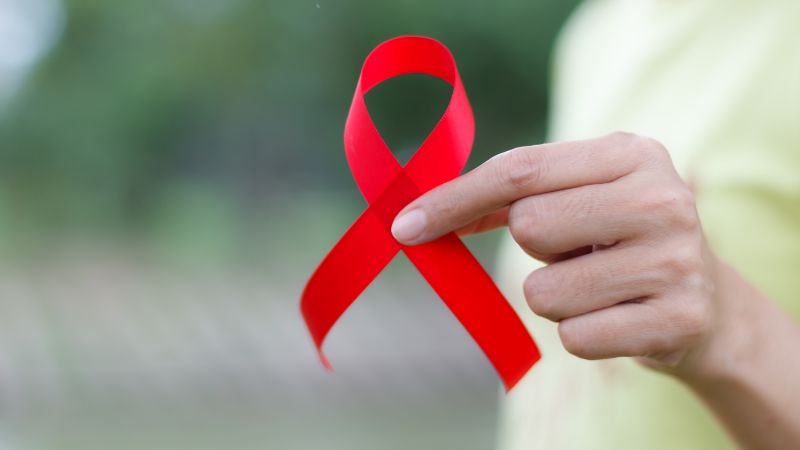
Research shows that WA students still have big gaps in their knowledge
The latest findings from La Trobe University’s 7th National Survey of Australian Secondary School Students and Sexual Health 2021-22 highlights critical gaps in sexual health education for Year 10-12 students in Western Australia, particularly concerning HIV awareness and prevention.
The survey was taken by 6841 Year 9 -12 students in Government, Catholic and Independent schools from each state and territory.
It found that while 86 per cent of students in their final years of school understood that HIV could be transmitted through sex, only 16.4 per cent were aware of preventative strategies including PrEP and PEP.
The research also highlighted that student understanding of HIV has declined over the years, with misconceptions persisting—only 17.6% knew HIV cannot be spread by mosquitoes, and just 42.8% correctly answered that coughing or sneezing does not transmit the virus. While just over 20% incorrectly responded that HIV can be spread through hugging.
The 2021 report also noted that more than half of the students surveyed thought the chance of getting a sexually transmitted infection was “very unlikely”, a response that also raises concern about young people’s knowledge.
Marcus Shaw, who is the Manager of Population Health and Community Development at WAAC, formerly the WA AIDS Council, said the research and experiences his team members supported the concerns raised by Dr McCabe.
“Current research, as well as the work we do in schools, highlights that there is limited knowledge and a lack of engagement by schools and teachers when it comes to HIV and broader relationships and sexuality education.” Shaw said.
He said while teachers are often okay sharing the basics of Relationship and Sexual Education (RES), they often shy away from including information about risk reducing behaviur.
“One of the key challenges is teacher and school staff confidence and attitudes towards teaching RSE – research tells us teachers feel confident to teach general knowledge but are less so in teaching feelings, values and attitudes related to relationships or sex, or promoting risk-reducing behaviour.” Shaw said.

The survey from LaTrobe University also showed that the average age young people are becoming sexualy active is fifteen.
Of those surveyed 56% reported that they had engaged in vaginal sex, while 13% reported taking part in anal sex. Half of those surveyed reported giving and receiving oral sex. Most young people had also watched pornography, with 86% reporting they had viewed adult material, and 14 per cent sharing that they viewed pornography daily or weekly.
Worryingly, only 44% of students reported using condoms during their last sexual encounter, despite 73% of them noting that condoms were readily available. When asked why they did not use condoms many people shared that they were not concerned about sexually transmitted infections.
The latest report shows that young people in Australia today are much more sexually active than their parent’s generation. In 1992 4 per cent of students reported being sexually active, while in 2021 it was 59 per cent. Over that same time period condom use has dropped from 59 per cent to 49 per cent.
A similar study published by the University of New South Wales in 2019 reported similar findings. The National Debrief Survey, which involved 2,300 respondents, found that 75% of people aged 15 to 29 who had sex partners in the past 12 months had sexual intercourse without condoms at least once in that time.
Most of these young people (69%) engaged in sexual intercourse without condoms with regular partners, and around a quarter (24%) did not use condoms with casual partners.
Worryingly, the higher the number of sex partners, the more likely it was that they would not use condoms during sexual intercourse. Two thirds (66%) of young people who had 5 or more sex partners in the past 12 months, reported condomless sex with casual partners in that time.

Dr Philippe Adam from UNSW’s Centre for Social Research in Health attributed the lack of condom use to societal norms rather than a lack of education.
“Contrary to what is often assumed, engaging in condomless sex is not related to a lack of knowledge about STIs. It is primarily due to social norms regarding the use of condoms that are only moderately supportive. In other words, not all young people think that their peers would expect them to use condoms.” Dr Adam said.
“We know young people are having all kinds of sex – including vaginal, anal and oral. Educating on harm reduction and prevention strategies in a sex positive way in crucial.” Marcus Shaw told OUTinPerth.
“We see less than half of students reported using condoms during their last sexual encounter, despite the majority having them available to them. So much of our work is breaking down barriers for condom use – navigating pleasurable condom use, condom sizes, navigating tricky conversations about using a condom and so on.
“Finally, we see many young people viewing and ‘learning’ about sex from porn. Porn usually pictures condomless sex – this is what young people are learning as normal.”
End of year ‘Leavers’ celebrations are one time of the year when the staff at WAAC have a lot of interaction with young people, and they note that it is clear that students are eager to get more information, and when safe sex options are available and explained young people engage with them. WAAC distributes over 16,000 condoms during the celebrations.
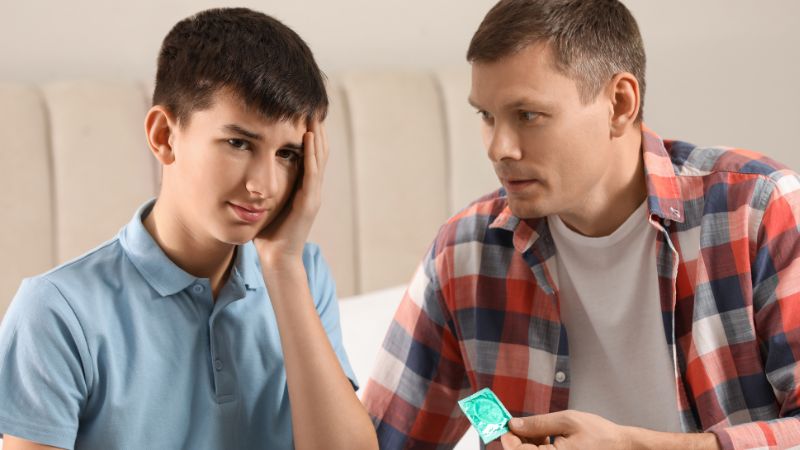
Overwhelming majority of parents support age-appropriate sex education in schools
A report from Curtin University released in late 2022 showed that over 90 per cent of parents in Western Australia agreed that access to age-appropriate sexual health education in schools is a basic right for all children and youth.
Parents also agreed that sexual health education should incorporate a balanced approach that includes the positive aspects of sexuality and relationships as well as the prevention of sexual health problems.
The Parents and their support for school-based relationships and sexuality education publication utilised data from 2,427 parents who were surveyed across Australia in 2021 and broke down the findings in relation to 643 WA based parents who took part.
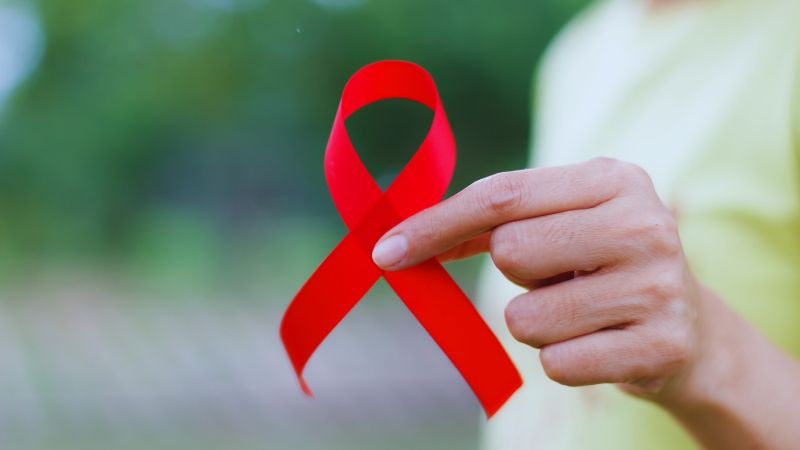
Why does up-to-date information about HIV not reach Western Australian youth?
Several barriers have been identified in improving young people’s HIV knowledge.
The flexible curriculum, which allows teachers to work within a rough guideline of content, does allow for tailored content for different cohorts. Yet this also often means that teachers who are not confident in their knowledge of HIV skim over the topic, leading to lighter coverage than what may be required.
It’s also been suggested that increasing societal pressure of educators has led to schools avoiding any topic that might cause controversy.
The challenge is not just for educators, many parents also lack resources to effectively explain sexual health, or the confidence to have frank discussions.
WAAC said a tighter curriculum and more training and support for teachers is needed, as well as information and support to empower parents.
Support offered for parents to take the lead
The government has developed the Talk soon, Talk Often series of resources for parents. It is a guide on how parents should talk to their children about topics around sexuality, sexual health and behaviour.
It notes that many parents might have grown up at a time when discussion about sex was not held within the family and recognises that people who are same sex attracted, transgender or intersex probably had even fewer conversations that felt relevant.
The website has a section on sexual health and discusses sexually transmitted infections and blood borne viruses and notes that there is no cure for herpes or HIV, but treatments are available that ease symptoms and reduce the risk of passing them on.
The site also includes links to another site, Get the Facts, which has more detailed information about HIV and a tool to help find service providers.
There are also links to WAAC, who offer a suite of education services and resources as well as free condoms for schools and other services.
Declarations: OUTinPerth Co-editor Leigh Andrew Hill is an employee of Curtin University.
Graeme Watson spent many years as a volunteer at WAAC working on several programs, including delivering talks about HIV in Western Australian high schools. Graeme stopped volunteering at WAAC upon his appointment as editor of OUTinPerth in 2011.




